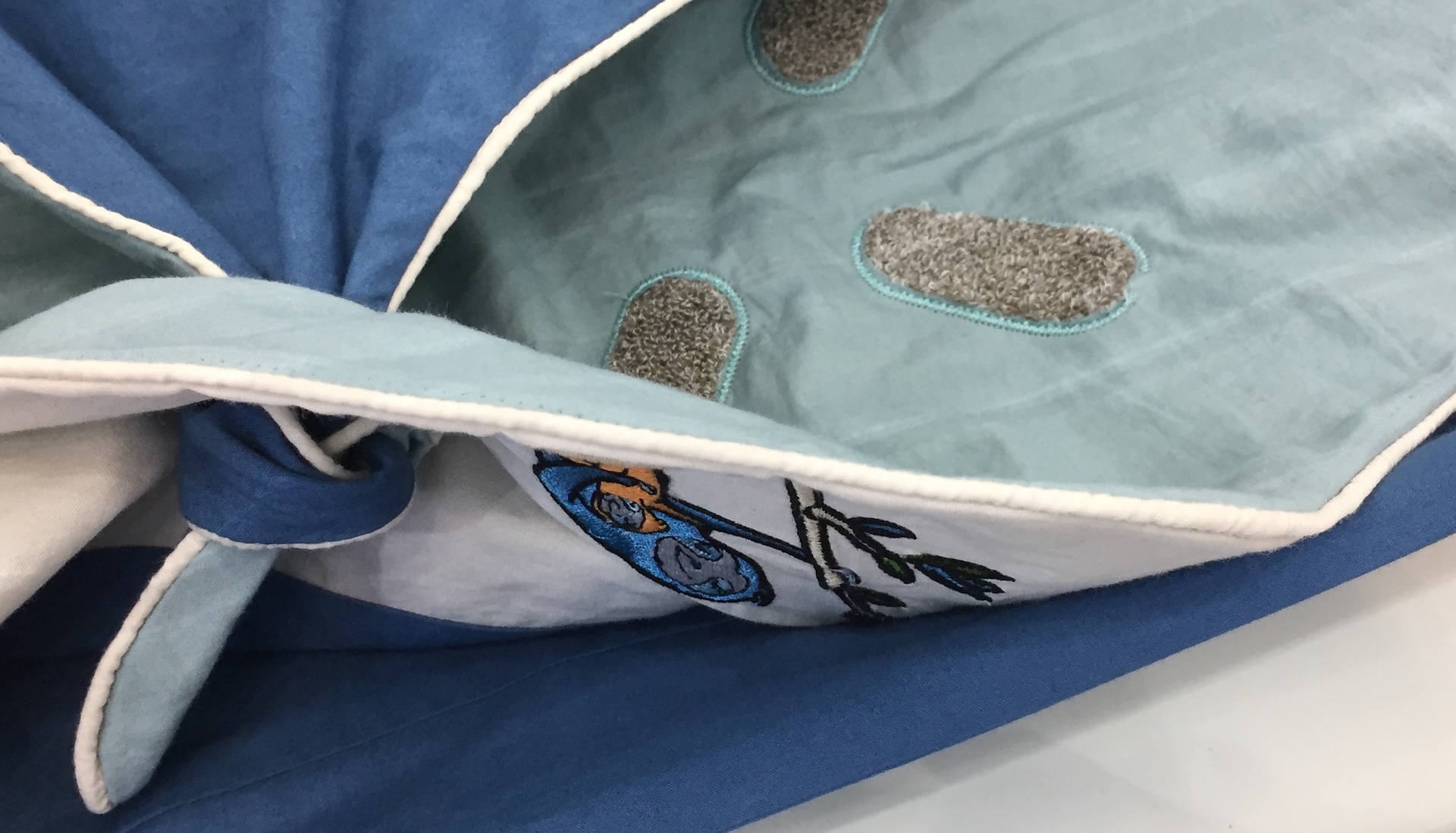NeoSmartNest - Positioning and monitoring system for premature babies
Wireless and adhesive-free premature baby monitoring
With funding from the European Regional Development Fund (ERDF), a consortium of start-ups and universities has developed a hammock for the incubator and a sensor pad for wireless and adhesive-free vital signs monitoring in premature babies. The start of life for premature babies is a phase full of challenges - both for the babies and their families. Unfamiliar noises and light stimuli in the intensive care unit are stressful for babies. However, there is no compensation in the form of cuddling, rhythmic movement or the mother's voice. Although cables, adhesive electrodes and incubators provide excellent medical care, they make it difficult for motor skills to develop, soft bones to form and relationships to be established with parents. Current WHO recommendations emphasize the importance of the environment and the bond between parent and child: Physical contact improves the development of premature babies.
Creating a feel-good atmosphere for parents and child
The NeoSmartNest consortium, consisting of the start-ups Incoretex GmbH, SWG Sportwerk GmbH and Kluba Medical GmbH, joined forces with TU Dortmund University to develop holistic solutions for the sensory system and positioning of premature babies. The aim was to create a feel-good atmosphere for parents and child and to simplify care. The project partners received funding from the ERDF NRW for the development of functioning prototypes, which can show possible new perspectives for neonatology.
The developers were also supported by various partners: the federal association "Das frühgeborene Kind", the Clinic for General Pediatrics, Neonatology and Pediatric Cardiology at Düsseldorf University Hospital, as well as the Clinic for Newborns and Premature Babies at Elisabeth Hospital in Essen and various subcontractors. The key results of the development project are prototypes of a premature baby hammock for the incubator with a sensor pad, which enables cable-reduced and adhesive-free vital parameter recording.
Two different approaches were developed
The hammock creates a rhythmic rocking of the premature babies, which is intended to create a development-promoting, womb-like environment. The hammock with frame can be set up flexibly in any incubator. This type of positioning enabled the research group to attach adhesive-free sensors to the integrated base. Two approaches were developed: Textile ECG electrodes, which were sewn separately directly into the hammock textile, and a flexible sensory mat that measures pressure, oxygen saturation, temperature and humidity.
The signals from the sensory mat can also be used to determine vital parameters such as movement, respiratory rate or heart rate. To do this, the signal components of the raw signals must be separated with the help of algorithms so that they can then be assigned to the individual parameters. Initial tests with a newborn baby also resulted in good quality ECG curves with the textile ECG electrodes of the hammock, so that the ECG curve, respiratory rate and heart rate could be recorded from these.
655.728 Euro
EU-Fördermittel
At a glance
Total investment: 1,311,456 euros of which:
EU funding: 655,728 euros
NRW state funding: 419,133 euros
Project partners
Kluba Medical GmbH
SWG SportWerk GmbH & Co. KG
Incoretex GmbH Digital Capability Center
Technische Universität Dortmund
Runtime
01.01.2020 to 31.12.2022
Thematic focus
Prototype to become series model
"We are proud to have produced prototypes that will enable new, gentle diagnostics and supportive positioning for premature babies in the future," says Björna Althoff from Kluba Medical GmbH. Development will continue after the funding project - the hammock already presented at trade fairs such as Medica will not remain a prototype, but will be developed into a series model and medical product. The partners also want to pursue the idea of the sensor pad further.
Regulatory difficulties for clinical trials need to be overcome, as do high investment costs. "We are delighted when we are approached by investors who want to support us in giving premature babies and their parents an easier start in life," says Nicole Klingen, Managing Director of Kluba Medical GmbH.




